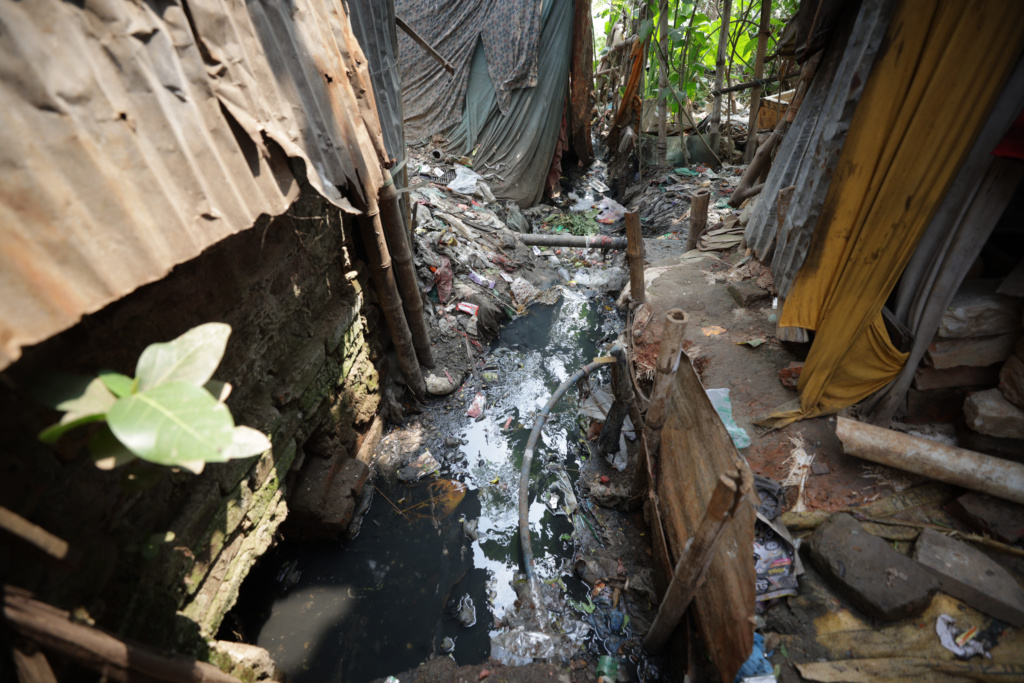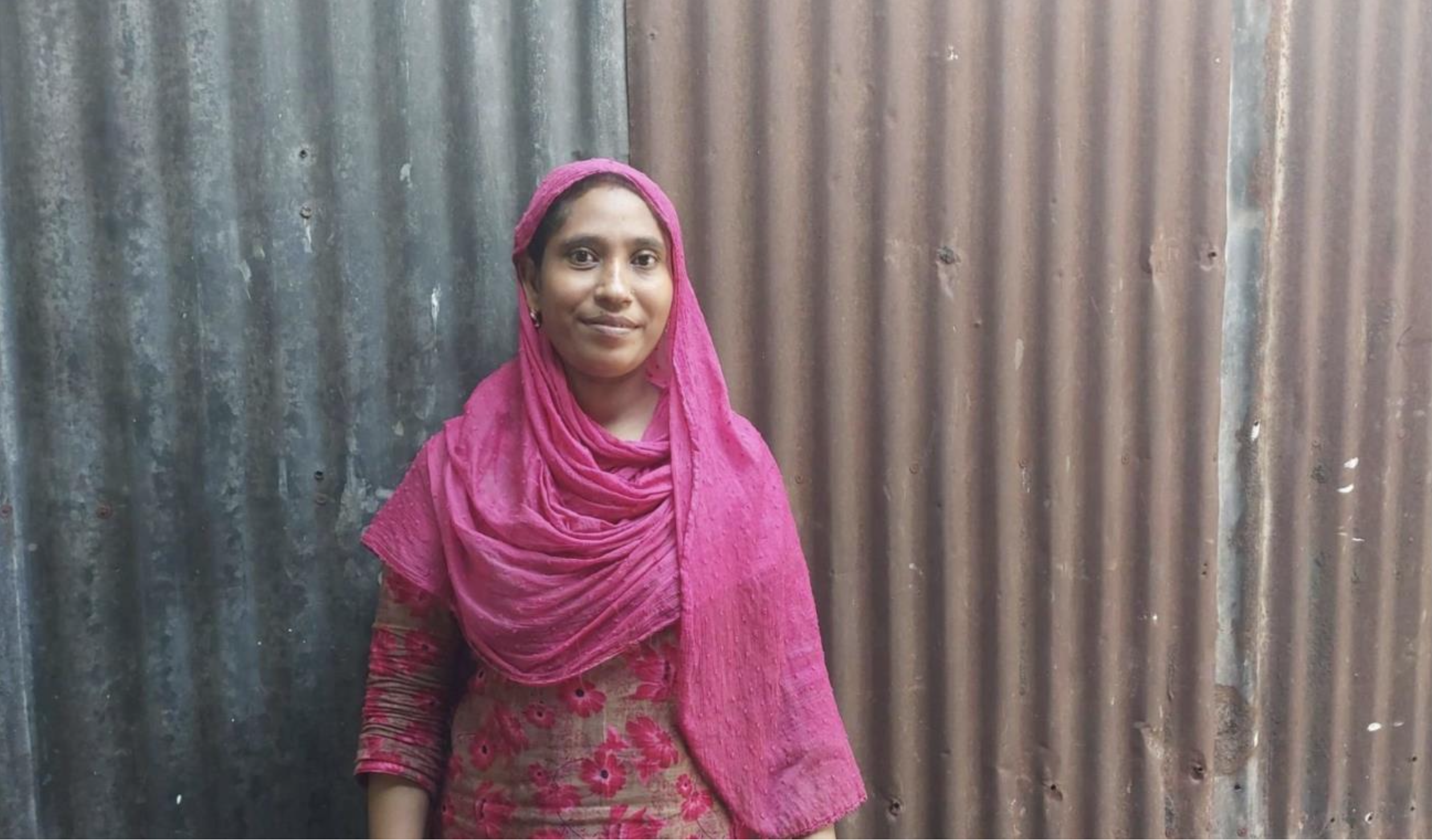In many parts of the world, menstruation remains shrouded in stigma and silence. Myths, and misconceptions leave women and girls without the information and resources they need to manage their health. For Komola, a 30-year-old homemaker living in Beguntila, Bangladesh with her husband and two children, this silence was an everyday reality. In 2024, a Habitat for Humanity training on menstrual hygiene management (MHM) opened her eyes and empowered her to help her family and community lead healthier lives.

Komola had lived in Beguntila for nine years, unaware of many basic health and hygiene practices. Like many women in her community, she had little knowledge about the biology of menstruation or how to manage it hygienically. This lack of understanding often led to embarrassment, discomfort, and health issues for her and her family. They experienced frequent illnesses, which hindered their day-to-day life.
“There was a time when I didn’t wash my hands properly or even cover leftover food,” Komola recalls, highlighting the gap in knowledge that extended beyond menstrual hygiene to overall health practices.
That all changed on September 13, 2023, when Komola attended a training session hosted by Habitat for Humanity Bangladesh. The session focused on Menstrual Hygiene Management (MHM), a crucial but often overlooked aspect of health education in many low-income communities. The training covered the biology of menstruation, proper hygiene practices, and the different types of menstrual products available—including eco-friendly, cost-effective options like reusable cloth pads.
For Komola, this was a turning point.
“After the training, I realized the importance of nutritious food, especially during menstruation,” she said. The knowledge she gained not only empowered her to take better care of herself but it also positively impacted her entire family, with illness becoming less frequent.
From Silence to Empowerment
The most significant change, however, was Komola’s newfound comfort with her body’s natural processes. No longer feeling ashamed of menstruation, she began to share her knowledge with other women and girls in her community, starting conversations about topics that had long been silenced.
“My family is now aware of different health and hygiene issues. We are more careful about what we eat, what we wear. Even we are careful about using sandals in the bathroom at all times,” she shared. Komola’s experience demonstrates the ripple effect that education can have. Her story is one of personal transformation, but it also speaks to a broader shift in her community, where knowledge is power and shared wisdom can lead to healthier, more dignified lives.
Habitat for Humanity’s Role in Menstrual Hygiene Education
Komola’s story is one example of how Habitat for Humanity Australia, working in partnership with local teams across Asia and the Pacific, is making a difference in the WASH (Water, Sanitation, and Hygiene) space. The organization’s programs are designed not only to provide access to clean water and sanitation facilities but also to empower communities through education on essential hygiene practices, including menstrual hygiene management.
Through initiatives like the Building Resilient Urban Slum Settlements project in Bangladesh, Habitat delivers life-changing training to women like Komola, helping to break down the taboos surrounding menstruation. In Bangladesh alone, 75 women have already received MHM training, learning about sustainable menstrual products and the importance of proper hygiene during menstruation.
The Global Menstrual Hygiene Crises
Komola’s story is part of a larger global issue. Over 500 million women and girls lack access to adequate menstrual hygiene facilities, which can have serious consequences for their health, education, and economic opportunities. In many countries, girls miss school during their periods due to a lack of sanitary products or proper sanitation facilities, perpetuating gender inequality in education.
Habitat’s focus on WASH programs, including menstrual hygiene, is a critical part of the global effort to close this gap. By integrating MHM into broader hygiene and sanitation initiatives, Habitat ensures that women and girls are not left behind in the fight for access to clean water, sanitation, and dignity.
Building a Healthier Future
Komola’s transformation from a woman living in silence and discomfort to a community advocate for menstrual hygiene is a powerful reminder of what can be achieved when we invest in education and empowerment. Her story underscores the importance of breaking the taboo around menstruation and equipping women and girls with the knowledge and tools they need to lead healthier lives.
The Building Resilient Urban Slum Settlements project in Dhaka, Bangladesh receives support from the Australian Government through the Australian NGO Cooperation Program (ANCP) and is in partnership with our implementing partner Habitat for Humanity Bangladesh.


